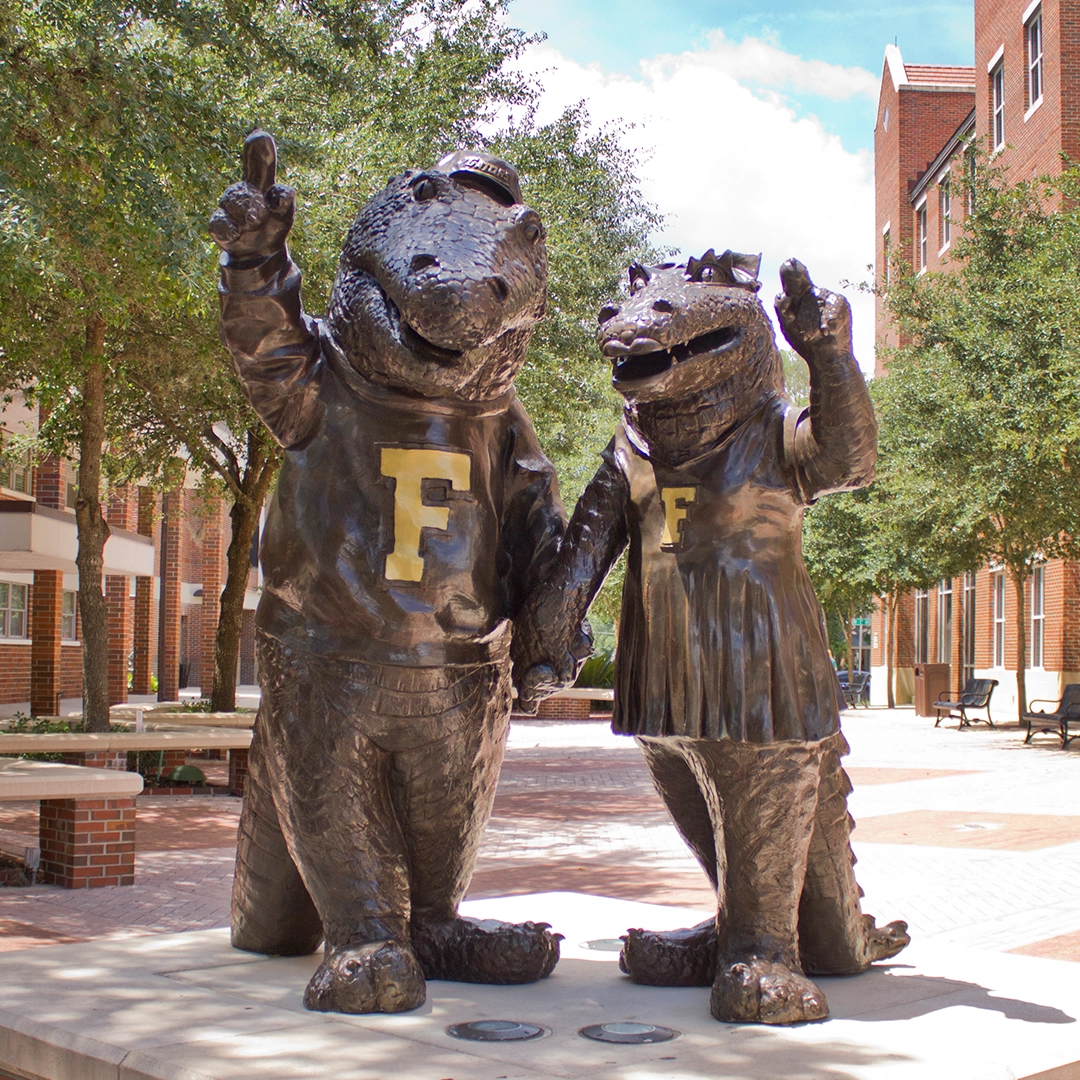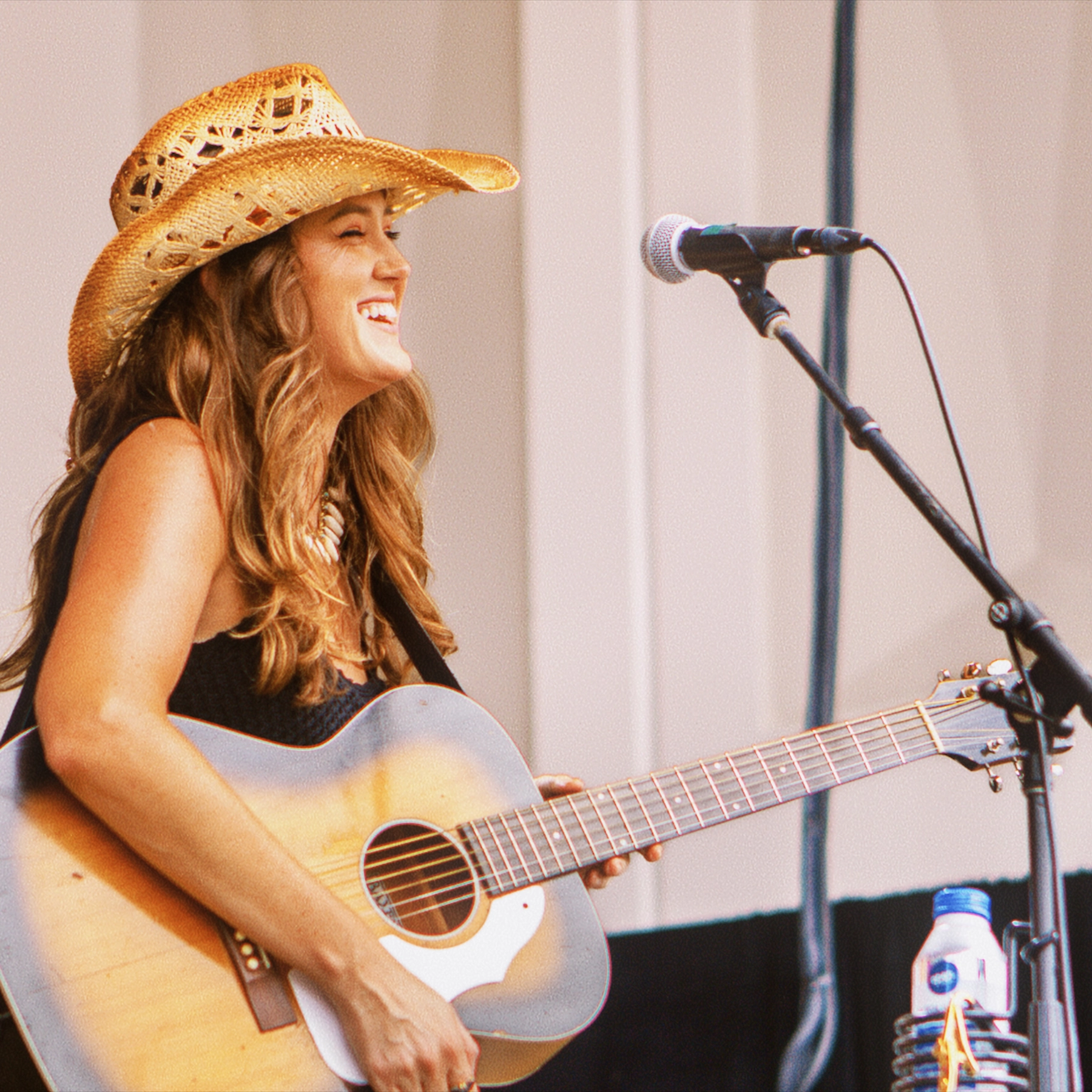by Moni Basu | July 14, 2020
Veterans Hook Fish & Friendship on the Water
The war doesn’t end when our soldiers come home. That’s where Freedom Fighter Outdoors comes in.

On a February day when the morning skies cannot decide whether to remain quietly gloomy or burst into tears, this marina just north of Fort Lauderdale has come to life. This is no ordinary crowd of sun-swept fishermen going out to sea for their daily catch of wahoo or mahi-mahi. Nor is it a gathering of tony snowbirds eager for a day of Atlantic leisure.
No. Here, on a freshly renovated deck, slick with dampness from both ocean and sky, stand 27 men and women who wear hoodies, cargo shorts and the profound effects of war. Some of their hurt is apparent—a lost limb or shrapnel that left an indelible scar. Most bear deeper blemishes, invisible to those around them and known, perhaps, to no one.
The act of coming home from the battlefield can be an arduous one. It can be, at times, harder than war itself. Harder than killing. Harder than dying. The men and women on this marina know it firsthand.
They have their demons, new wars they wage inside their heads long after leaving distant lands like Iraq and Afghanistan. They contemplate their own mortality and question why they survived when their buddies didn’t. They want desperately to save tattered marriages or be the father their children idolize. They drown in alcohol or something stronger to smother their sores.
I don’t know all the stories of those who have come here on this winter day, but over the 14 years that I reported from Iraq, I met men and women who were broken by war. Some were able to stand up again; some could not. In my time embedded with various Army and Marine units, I had learned one very important aspect of healing: there was no substitute for finding someone who could understand. That meant in many cases, it was not a beloved spouse or even a therapist. It was someone who had also survived agony.
SOOTHING AN INVISIBLE WOUND

Vinnie LaSorsa understood that, too. The Florida boat captain and lifelong fisherman has been taking veterans out to sea for more than 10 years now with the hope that they just might find a way to win the war raging in their minds.
As the son of a Secret Service agent, LaSorsa, 37, grew up in Annapolis, Maryland, and New York, surrounded by the military. He knew how important it was to give veterans an outlet. Active duty troops make up less than half a percent of America. Few people in this country have direct contact with the military, let alone comprehend combat experiences. At the height of the two post-9/11 wars, Americans displayed a penchant for plastering their cars with magnetic yellow ribbons intended to show support for the troops. With the best intentions, they uttered the words, “Thank you for your service,” without really knowing what that service entailed.
He had yearned to join the Marine Corps after college but when an opportunity arose aboard one of singer-songwriter Jimmy Buffett’s boats, the Marine recruiter encouraged him to choose the water over camouflage.
LaSorsa saw how his brother, four years younger and a Marine lieutenant, was haunted by the sacrifices of his platoonmates. Was it worth it? What difference were they making in Afghanistan? In Iraq? These were questions many servicemembers struggled with in post-9/11 wars that had no frontlines but hidden enemies who engaged in unconventional urban warfare.
LaSorsa was troubled by his brother’s woes.
“That should have been me,” he thought.
He knew he had to do something to help the thousands of men and women who were returning from costly tours of duty. He did it the only way he knew how.
Once you have gone fishing with somebody, you build a connection with those people on the boat that almost lasts a lifetime.
— Vinnie LaSorsa
He had also grown up surrounded by oceans and rivers, and as a boy, LaSorsa fished Chesapeake Bay with his father on his 17-foot Aquasport. They caught rockfish, striped bass and bluefish, some that weighed as much as little Vinnie. He felt at home on the water.
“I wanted to stay out and catch more,” LaSorsa says. “I’d beg my father to stay longer. Try more spots.”
He got his commercial fishing license at 19, then earned a degree in business administration. He put the two together in May 2009 when he took a small group of four veterans out fishing for a day. The idea snowballed. Within a year, he was taking out five boats and 30 vets. By 2013, he had founded Freedom Fighter Outdoors. His wife, Sarah, is the backbone of the organization.
LaSorsa typically takes out two to seven veterans on his boat, though he sometimes brings many more to events like the one on this day. Freedom Fighter Outdoors hosts about a dozen small and large fishing events a year and typically reaches about 200 vets annually. The organization also sponsors hunting adventures and gold tournaments.
“We are growing but not trying to get too big that it may affect our quality,” LaSorsa says.
The hope is that the guys who go spend outdoor time together make bonds for a lifetime. They exchange cellphone numbers and friend each other on Facebook. They connect, and stay connected, so that maybe on a dark night, one can call the other and avert the worst.
A 2019 survey conducted by Iraq and Afghanistan Veterans of America found that 59 percent of the group’s members knew a veteran who died by suicide. LaSorsa tells me he has known four men who took their own lives. That’s the enemy he is fighting.
“Once you have gone fishing with somebody, you build a connection with those people on the boat that almost lasts a lifetime. I have seen this happen a thousand times,” he says.
“You share an experience, even if the fishing isn’t that great that day,” he says. “A lot of these vets come out of their shell on the boat. That camaraderie they had in the service comes back. They feel they have a support group. They can reach out to someone when they can’t sleep.”
I ask LaSorsa what he gets out of these trips, beyond a day’s catch.
“It helps me with my guilt,” he tells me. The guilt that stems from never having put on a uniform.
“I feel it wasn’t fair,” he continues. “My job is unique. I work hard. It’s not all sunsets and margaritas. I’m not home a lot for holidays. But I’m not getting shot at.”

Freedom Fighter Outdoors has no office, no CEO, no payroll. Sarah LaSorsa runs the operation out of the family home in Lighthouse Point except for a storage unit that holds donations—coolers, fishing rods, hats. LaSorsa says 86 cents of every dollar raised goes directly toward events like the one today so that veterans can pick up a rod, get on a boat and let the waves carry them far from shore.
Maybe, way out there, in the vastness of the water, amid elite company, they can soothe their aching souls.
SOMETHING MAGIC HAPPENS
This is the fourth Freedom Fighter Outdoors fishing event for Army Cpl. Dortrie Jones Jr., though few here know him by his birth name. He goes by Bird, a moniker he earned as a child after he picked remnants of cornbread and crackers off of other people’s plates. The name stuck even though he grew to NBA height and commands a presence that looms as large as the ocean lapping at our feet.
“Don’t call me Big Bird now,” he quips about the beloved Sesame Street character. “I mean, am I yellow?”

Jones, 36, grew up in Memphis. Shot hoops on the streets. Played football. Wanted to be a track star. But sports programs came at a cost that was too high for the auntie who raised him.
He worked in food prep at a Chick-Fil-A inside the now-demolished Raleigh Springs Mall. That’s where he met his wife, Katrina. Two years passed before he mustered the courage to ask her on a date. He was shy. Bashful.
He had a stutter that got in the way. The first time he tried to enlist, the Army rejected him because of his speech impediment. But Jones kept trying and in 2004, he finally got in. Before he left for basic training, he told Katrina he had a hunch she was pregnant with their eldest son, as though it had been preordained. He was right. Before he deployed to Iraq with the 1st Cavalry Division two years later, he told her he feared he would lose a leg. He had dreamed about it and woken up in a cold sweat.
Two weeks before Christmas, Jones was part of a night patrol in Baghdad when his Humvee rolled over an improvised explosive device or IED, a term that came to describe the signature weapon of the Iraq war. This one blew up right under Jones’s truck.
“I was there two months, and then I blew my ass up,” Jones says with a thundering laugh.
That moment lives in his mind as a deafening bang and then, smoke and dust everywhere. When he tried to stand up to signal to his buddies that he was OK, his leg fell out of his pants. He remembers Spc. Nick Steinbacher baseball sliding over to him. Steinbacher kept talking to Jones to keep him alive. Jones’ tourniquet broke and Steinbacher put his own on Jones to keep him from bleeding out. After that, things are a blur.

People treated me differently. It made me feel useless. For a while I felt like I had become a burden.
— Army Cpl. Dortrie Jones Jr.
Jones spent months in the hospital, first in Landstuhl, Germany, and then at Brooke Army Medical Center in Texas. When the scars healed, he was fitted for a prosthetic. But there was no such aid for the wounds within. In retrospect, Jones says learning to walk again was the easy part. It was all the stuff inside his head that plunged him into darkness.
At first, he says, he refused to accept he had lost a limb and would be maimed for life. He lost his appetite. He couldn’t sleep. He was moody and easily agitated.
“I was in denial,” he says.
Then, he got increasingly angry.
“People treated me differently,” he says. “They treated me like a baby. It made me feel useless. For a while I felt like I had become a burden.”
He frequented bars, began drinking too much and passing out. It numbed everything. He punched holes in the wall, hit things. He lied to his therapist that he was better. The reality was that he felt tremendous guilt that he had survived. Steinbacher, the young soldier who had just celebrated his 22nd birthday, died a little while after he had helped save Jones’s life.
“He was a baby,” Jones says. “I felt like he should have been the one injured and I should have passed away.”
Jones relived the explosion over and over again. Except, in his dreams, it was worse than it actually was. And he kept seeing Steinbacher’s face. His baby face.
The emotional distance between Jones and his family grew wide. Katrina took the kids and left home. She couldn’t bear it anymore.
“I thought about killing myself many times,” Jones says. “I even tried once. Took a lot of sleeping pills.”
He feared he could never again be the man he once was.
“I was trying to fill a hole but trying to fill it with the wrong things,” he says. “I’m like a not-so-strong hawk.”
It took Jones many years to recognize he needed help. He says he still struggles with his emotions but he managed to get his life back together. He wanted to move to Florida to be closer to a few of the men in his company. They could relate to him better than anyone else. A veterans organization helped him buy a three-bedroom, two-bath house with a swimming pool in Orlando. He also began playing with the Orlando Magic Wheels, a wheelchair basketball team. It reminds him that he can still play sports.
“And,” he says, “it made me want to try to do more stuff and see what I am capable of.”

In 2017, Mike Burke, a sergeant Jones served with in Iraq, told him about Freedom Fighter Outdoors. Burke told Jones he ought to try fishing.
Jones was afraid of boats mostly because he doesn’t know how to tread water. He learned to swim late in life and almost drowned in a pool once. A self-proclaimed “sinker,” he used to avoid being in water unless he could see the bottom.
Jones was skeptical for other reasons as well. His take on veterans groups was that they were dog-and-pony shows that paraded the pain of soldiers for their own gain. To be sure, the wars in Iraq and Afghanistan had given rise to myriad upstarts, many of which focus on reintegrating service members back into the social fabric of America. I found hundreds of such groups on Charity Navigator; at least 20 had the words “freedom fighter” in their names.
Josh Sandor, another Iraq veteran who, like Jones, now does outreach for Freedom Fighter Outdoors, says he, too, was wary the first time he got on a plane for Florida.
Sandor had suffered a traumatic brain injury in an explosion similar to the one Jones had experienced. It affected Sandor’s speech and his memory. He could remember his first car, a 1985 Monte Carlo. But his mind was a blank slate before the age of 17. He’d played baseball as a kid but could not remember any of the games. He was in the high school marching band but could not remember any of the events. Other things were a blur, too. At his wedding, his best man had to tell him how he met his wife.
Sandor’s life became a series of reminders in the form of Post-it notes and calendar entries. His anxiety took over at times. He says he looked like a monster reacting to a butterfly. One day, the driver of his Humvee, a guy who had lived through the same blast in Iraq, suggested he should give Freedom Fighter Outdoors a try.
“I was like, ‘Yeah, this is all too good to be true,’” Sandor tells me on the phone from his home in Milford, Pennsylvania. “The toughest part for FFO is to convince the veteran to leave his safety bubble.”
But then, everything changes once a veteran arrives here at Lighthouse Point. Something magic happens. Out there on the ocean, broken men and women can put aside their injuries and their nightmares. They can let go because they are with people they trust.
On his first trip, Jones downed a couple of cold brews, hauled in a 35-pound mahi-mahi and laughed with the guys on his boat. Guys who understood.

“That gets you out of your funk,” he says. “Helps you to ease your mind. With these guys, you feel more comfortable. Safer. You know they would not let anything happen to you.”
Now, on this gray day, he makes sure the vets who are here for the first time feel like they belong. He hands out boxed lunches of chicken salad and turkey club sandwiches. He looks out for a friend, Kayla Switzer, who Jones met not too long ago at Trick Shots, a billiards bar in Orlando.
LIGHT AS AIR
I follow Jones and Switzer and climb aboard the Karma, a 70-foot Viking donated for use today by owners Fernando and Melissa Roig. Switzer’s eyes get big; she has never been aboard such a swanky boat. “This is alright,” she proclaims.
Jones eyes the bait fish, unaware of their fate, swimming circles in a holding tank. He falls back onto a sectional sofa in the cabin.
By the time the Karma and six other boats carrying the veterans journey out to sea, the drizzle of the morning has turned to a steady rain. It’s too nippy and damp to sit outside, even with blankets. Besides, the fish aren’t biting.
Instead, Switzer talks about how she always wanted to join the Army. How tough it was to be a single mom. Her son, the result of a rape. She got hurt in a training exercise, was honorably discharged and now lives on 100 percent disability. There are some days the back pain is so bad she can’t even get out of bed.
She married a man who helped her get her life back together but, she says he’s a civilian through and through, a city boy. He can’t understand Army shop talk. Not like the guys here.
“My life gets very dark sometimes,” she says, wiping tears from her eyes.
The cabin falls silent for a few seconds, though it feels much longer. Jones breaks it by pretending to be sea sick and feigns vomiting.
“What a goober,” Switzer laughs. Jones laughs. Everyone laughs.
This is why LaSorsa started Freedom Fighter Outdoors. If only, for a few moments, life for these soldiers could become as light as air.
We rock gently on the waves, the water just as choppy now as it was early in the morning. But it doesn’t matter. Out here, for these guys, catching a fish is just a fringe benefit.

MONI BASU is a veteran journalist and former reporter at CNN and the Atlanta Journal-Constitution. She now teaches advanced writing at the University of Florida and is also a distinguished professor of practice in the University of Georgia’s MFA program. Basu covered the Iraq war from its inception and published an e-book, Chaplain Turner’s War (2012, Agate Publishing), about an Army chaplain at war. Born in India, Basu grew up straddling two cultures and her work often explores the complexities of race, ethnicity and identity. You can read her last story for Flamingo about legendary racecar driver Hurley Haywood here.





